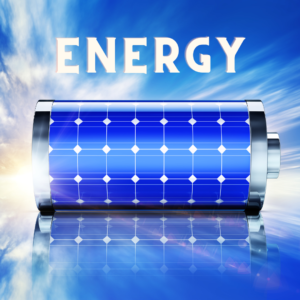Energy savings movement

Energy efficiency is always top of mind for the manufacturing industry. Efficiency cost savings for a manufacturer can translate into cost savings for the consumer, higher quality products, and healthier air, and, less electricity consumption means less stress on the electric grid. Energy efficiency in manufacturing can also lead to positive economic outcomes for both the business and the state, with increased state revenue and the proliferation of thousands of energy efficiency-related jobs.
The manufacturing sector requires a large amount of power, representing the perfect opportunity to strive for more energy efficiency.
The global automotive and transportation industry, valued at 2.95 trillion U.S. dollars, is one of the largest energy consumers. Its continuous growth poses significant challenges for manufacturers, who are under pressure to reduce their carbon footprint and consume less energy in the production process.
The transportation sector accounts for 25% of global energy consumption, and it’s also the sector that will find it most challenging to meet proposed goals. In recent years, emerging technologies have enabled the development of hybrid electric vehicles, battery electric vehicles, and fuel cell vehicles. However, despite offering a greener future, these developments don’t immediately address the sector’s high energy consumption.
Better Environmental Performance
With the advantages of high energy density and better environmental performance, lithium ion batteries are used for powering all types of electric vehicles (EVs) on the commercial market.
It’s essential to consider energy consumption in the context of the environment, as higher consumption means higher carbon dioxide production. According to the United States Environmental Protection Agency (EPA), a typical passenger vehicle emits about 4.6 metric tons of carbon dioxide annually.
Seal Methods is at the forefront of the energy savings movement as we move toward zero-emitting vehicles that will protect people’s health and wallets, safeguard our climate, and create economic growth and jobs.
SMI recognizes it has an enormous opportunity to work with customers that contribute to eliminating harmful pollution from cars and trucks.
We manufacture components for the OEM automotive and Electric Vehicle (EV) industry, energy high-performance aftermarkets, aerospace, electronics, industrial, transportation, medical, and countless others. SMI’s long history of engineering, prototyping, and manufacturing of precision die cuts and molded and extruded products allows us to identify the optimal materials and processes for each component.
SMI sees the many technological and environmental advantages EVs have. EVs produce zero tailpipe emissions in operations and can reduce the dependence of vehicle operations on foreign oil; EVs also operate quietly and smoothly, have stronger acceleration, and require less maintenance. Due to their superior environmental and societal benefits, EVs are considered the future mode of ground transportation and will be promoted globally for large fleet deployment in the coming decades.
Batteries’ Bigger Impact
As the world moves towards renewable energy resources, like solar and wind power, demand grows for ways of storing and saving this energy. Using batteries to store power can help solve one big problem of renewable energy. The environmental benefit EV batteries could offer energy grid stabilization.
As SMI develops its EV and energy program, the better the outcome for the energy used to charge their batteries.
Read more about it in our brochure. Click here to download
Please contact us For more information.
